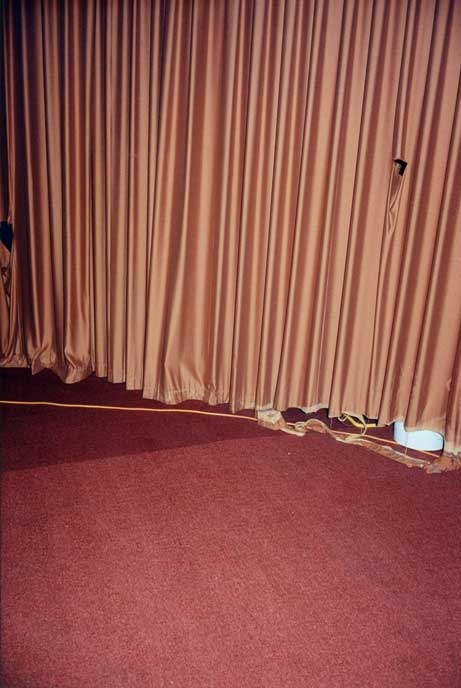‘Much of modern art is devoted to lowering the threshold of what is terrible,’ wrote Susan Sontag in On Photography (1977). Using the example of Diane Arbus’s posing pariahs, she bid farewell to a medium that gets us accustomed to the abysmal in the world, that takes the pain away from us – and, with it, our ability to empathise. Born four years before this text was published, Tobias Zielony photographs male prostitutes, drug addicts and unemployed youth in their environments.
Yet in doing so he not only goes beyond the mere suffering of others, but also beyond the documentary photography of the 1980s, when Nan Goldin and Larry Clark photographed their friends shooting heroin and made the format fashionable again. For the Berlin-based Zielony, people on the edge of society are not victims or outlaws surrounded by an aura of morbid glamour; they are the narrators of their own stories.
Zielony sets a stage upon which the failures of society are acted out
This was already the case in his series Trona (2008), for which Zielony photographed teenagers in an impoverished desert city in California among scrap cars, wire fences and rundown houses. Here, methamphetamine has left its traces on bodies, as have the poses of a completely mediatised, consumer-oriented world, which the residents use to stage themselves defiantly in front of the camera.
In the Berlinische Galerie, quotes are projected next to the series – sentences like ‘I hate it here’ zoom us into the emotional world of the residents, to which Zielony establishes a Wolfgang Tillmans-style relationship of proximity and distance: he invades their world, asks them to pose and captures exactly what is behind these gestures. An atmosphere of deprivation and loneliness spreads, inscribing the images with a timeless existentialism.
His newest series, Jenny Jenny (2013), premiered here, transfers this view onto the red light district of Berlin’s Potsdamer Strasse – however, without directly exposing the environment as such. In 40 photos, six women rummage in their handbags on the side of the road, casually steady themselves on the bed or lean, nearly naked, against a mirrored wall. Their gazes are not demanding, as the direct stance of bodies marked by piercings, scars and impres- sions might imply; rather they tiredly drift through or past the camera’s gaze.
Photographed in analogue format without artificial light, these are quiet, almost affectionate portraits. Zielony grouped them with photos of empty city squares, a bouquet of flowers or skyscrapers lit by the streetlight: in their resemblance to scenery or backdrops, these function as substitutes for the protagonists’ inner worlds.
It is in such references to emptiness – some of the images almost surreally colourful, others a gloomy chiaroscuro – that Zielony inscribes his documentary work with a poetic, fictional aspect. In a world full of images, ceaselessly supplied by advertising, music videos, etc, in which seduction and demand have become the basic drivers of bodily expression, Zielony sets a stage upon which the failures of society are acted out. The illusory promise of happiness in the postmodern world finds its broken mirror in the women’s self-portrayal and their quest for oneself.
Zielony does not hold up this mirror to us ‘to show that this is not the best of all possible worlds’, which Luis Buñuel once said was his reason for making films. Rather he lets the women tell their stories – and in Trona and the other series, they revolve around the end of youth in the age of pop culture. Zielony’s protagonists are hurt, but they don’t come across as victims or as habitués of some distant subcultural scene – rather, they deeply affect us.
This review originally appeared in the October 2013 issue.
